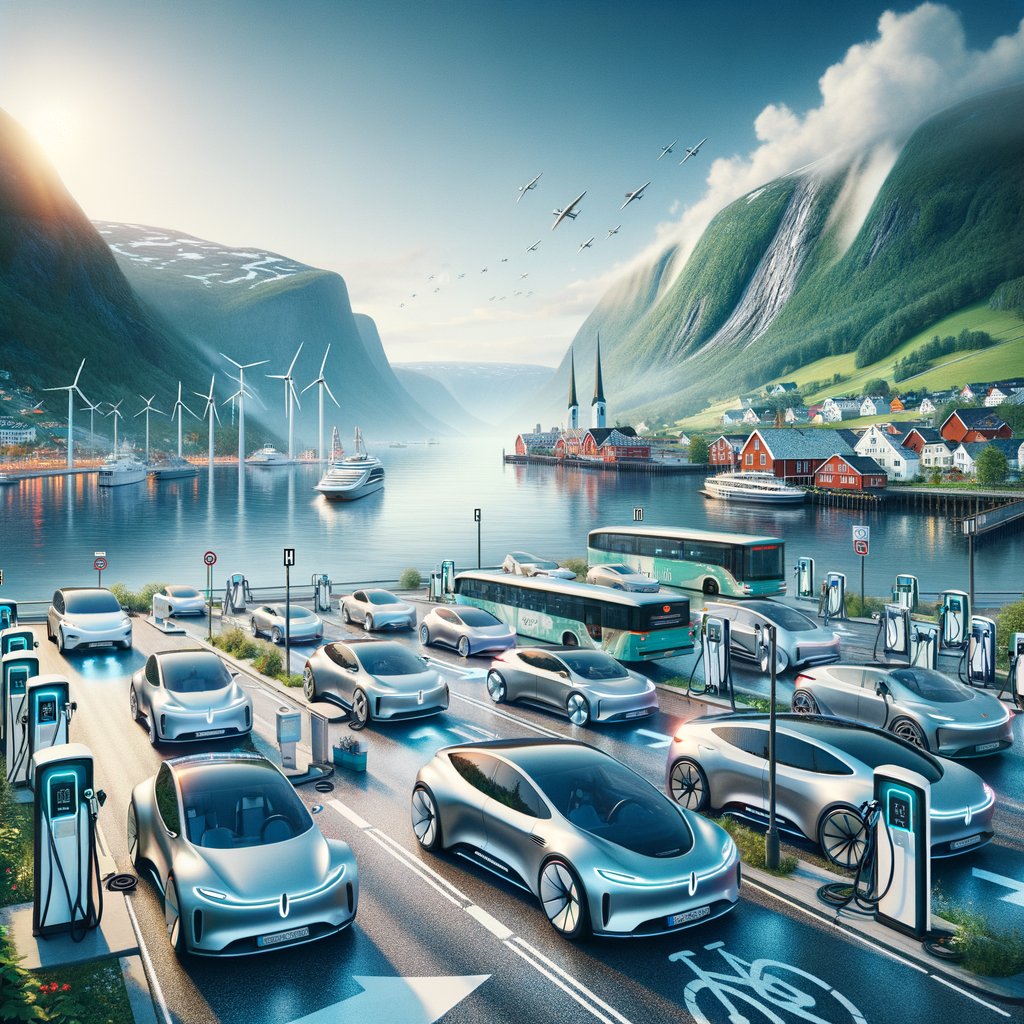Image created by AI
Norway Nears Electric Vehicle Utopia, Dominates with 89% Market Share in 2024
Norway has once again demonstrated remarkable leadership in the adoption of electric vehicles (EVs), with a staggering 89 percent of all new cars sold in the country in 2024 being electric. This significant statistic not only underscores Norway's dedication to environmental sustainability but also positions the country on the brink of achieving its ambitious goal of a fully electric car market by 2025.
The Norwegian government’s relentless commitment to this vision has been supported by a series of strategic incentives that have transformed the market dynamics favoring electric cars. The Norwegian Road Federation (OFV) reported an impressive rise from an 82-percent market share in 2023 to 89 percent in 2024, demonstrating a rapid shift towards more sustainable transportation options. In 2012, electric cars made up just 2.8 percent of total car sales, illustrating the dramatic growth in this sector over a little more than a decade.
Key to this surge has been a range of beneficial policies aimed at making EVs more attractive to buyers compared to their internal combustion counterparts. Norway has been avant-garde in implementing measures such as exemptions from many taxes which traditionally burden conventional car ownership. Additional advantages have included toll exemptions, the privilege to utilize public transport lanes, and complimentary parking in public areas.
Although some incentives have been scaled back, the mainstream acceptance of electric vehicles, coupled with sustained government backing, has fundamentally shifted consumer preferences. Oyvind Solberg Thorsen, the director of OFV, emphasized the importance of continuing these incentives to ensure the final push towards the 2025 target is successful.
Market trends show that Tesla continues to dominate the Norwegian electric car market, possessing nearly a fifth of the market share. However, other brands like Volkswagen, Toyota, Volvo, and BMW are also significant players. The anticipated entry of new Chinese brands could shake up the market further as we approach 2025.
Looking forward, Norway’s example could serve as a blueprint for other nations aiming to enhance their environmental footprints through transportation. As Norway approaches its target, it exemplifies the potent combination of government policy and consumer readiness to embrace green technology.
Despite Norway not being a member of the European Union, its ambitious goal sets it 10 years ahead of EU targets for "zero emission" new cars. This forward-thinking strategy not only caters to environmental sustainability but also aligns with global shifts towards reducing carbon emissions.
In conclusion, Norway’s journey towards an electrified automotive future highlights how concerted government action and responsive consumer behavior can drive substantial change. As the world watches, it remains to be seen how soon other nations will follow in Norway's footsteps to commit to a sustainable, zero-emission transportation paradigm.










